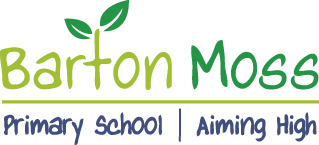Curriculum Approach
We are a school situated in an area of high deprivation, where many of our pupils face challenges stemming from low income and social disadvantage. These factors significantly affect their personal and educational development. Our commitment is to ensure equity and enhance the life opportunities of our pupils. To achieve this, we offer:
- A solid foundation in reading, writing, mathematics, and communication skills.
- A language-rich environment that builds vocabulary and promotes a love of reading.
- A curriculum that fosters knowledge and understanding of the world around them.
- A focus on subject specialisms that enable students to develop an awareness of the wide range of careers and training opportunities available to them in the future.
- Diverse cultural experiences to broaden their horizons.
- A curriculum that nurtures all aspects of pupil well-being and fosters a sense of community.
Our aim is to secure high achievement for all, including disadvantaged pupils and those with special educational needs and disabilities (SEND). Our curriculum design takes into account the social, economic, and cultural diversity of our families, ensuring it reflects the unique needs of our community.
School leaders collaborate to deliver a broad and ambitious curriculum tailored to our pupils' gaps in knowledge and barriers to learning. By focusing on the knowledge that is most valuable, we ensure that our pupils are prepared to be well-rounded citizens. We also involve our local community to enrich our curriculum.
We deliver the Early Years Foundation Stage (EYFS) Framework and the statutory National Curriculum, with equal importance placed on all subjects, including religious education and age-appropriate relationships and sex education. The development of basic skills underpins the curriculum, helping our pupils succeed across all subjects.
Our goal is to inspire and motivate our pupils to achieve their best, so they can go on to live happy and successful lives. We strive for a broad, balanced, and ambitious curriculum for everyone.
We celebrate the rich diversity of our school community through our curriculum, incorporating the many languages our pupils speak, and recognizing cultural celebrations and traditions. Many of our pupils come from low-income families, so we provide experiences they may not otherwise have, including trips to local sites of natural beauty, historical landmarks in Manchester, local universities, and places that showcase the town's industrial heritage. Our curriculum also highlights the achievements of local figures to inspire our pupils.
Our curriculum is designed to ensure logical progression in knowledge and skills across subjects, helping pupils make meaningful connections in their learning. We carefully considered our school’s context, pupils’ knowledge gaps, and the most valuable knowledge we can impart. Key concepts and learning milestones guide our curriculum planning to ensure strong progress. We embed academic and subject-specific language throughout all subjects.
To enhance learning, we provide a range of experiences and collaborate with external partners to extend our curriculum offer.
Reading is a top priority at our school, as it opens up access to the full curriculum. Pupils begin learning to read from day one in Reception, or earlier in nursery. We use a systematic synthetic phonics program delivered by highly trained staff, with regular assessments to ensure every child makes good progress. Those who fall behind receive prompt support to catch up.
Communication and language are central to our early years curriculum, especially as many of our pupils start school with limited language skills. We create language-rich environments where adults model ambitious vocabulary in both speech and writing. Reading is embedded throughout the curriculum, with carefully selected books designed to expand pupils’ worldviews through a mix of classic, modern, and non-fiction texts.
High-quality teaching is supported by detailed plans, and our teachers and teaching assistants receive ongoing professional development to maintain strong subject knowledge. Subject leaders play a key role in ensuring progression in knowledge and skills from unit to unit and year to year. They provide training, review plans, and monitor the quality of learning, ensuring our pupils have access to top-quality resources.
Effective teaching and learning practices are embedded across the school. Leaders observe, model, and support teachers to ensure consistency. Teachers use carefully chosen strategies to:
- Present information clearly and help pupils grasp key concepts.
- Check understanding, identify misconceptions, and correct errors.
- Help pupils embed knowledge in long-term memory and apply it fluently.
- Deliver lessons in a way that builds on prior learning and leads to defined end goals.
- Assess pupils’ knowledge to inform future teaching and ensure fluency.
Our assessment system helps pupils solidify their learning and allows teachers to set clear next steps. We collect data three times per year, in line with the Teacher Advisory Workload Report—‘Making Data Work’. This data is analysed to inform school actions, with leaders mindful of not adding to teacher workload.
Leaders measure the curriculum’s impact by comparing what pupils have learned to the intended goals, using both qualitative and quantitative data. We monitor attainment and progress across subjects and gather information through a variety of self-evaluation activities to continually improve the curriculum.
